Center for Native Peoples and the Environment
Collaborative Projects with Indigenous and Tribal Partners
2021
Haudenosaunee Forest Principles Project
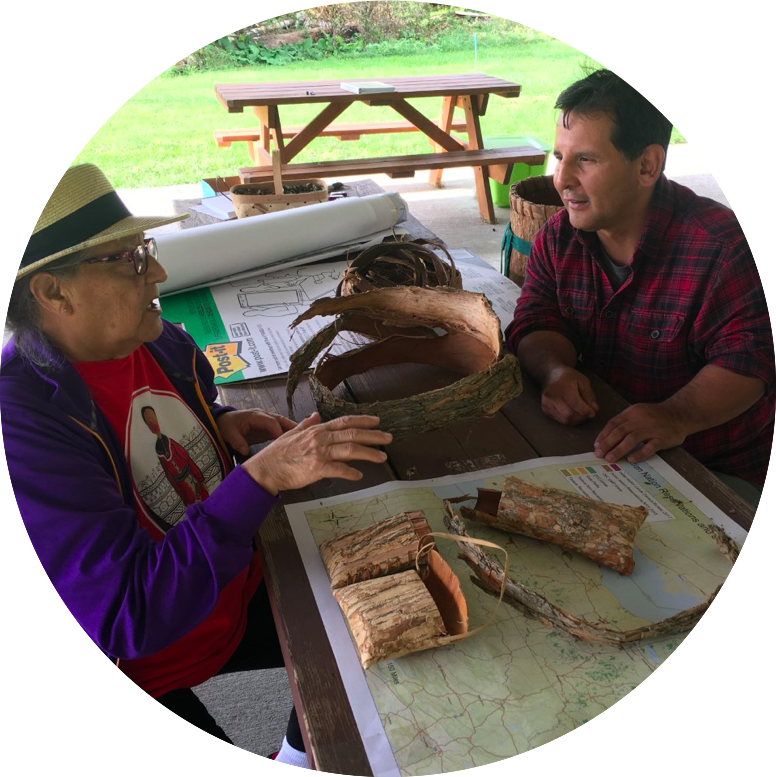 The Haudenosaunee Forest Principles Project aims to identify community research and
education priorities related to forest lands, develop forest curriculum for youth,
and create a set of criteria and indicators for assessing the wellbeing of Haudenosaunee
forests. The project is generously funded through the Northern States Research Cooperative
(USDA).
The Haudenosaunee Forest Principles Project aims to identify community research and
education priorities related to forest lands, develop forest curriculum for youth,
and create a set of criteria and indicators for assessing the wellbeing of Haudenosaunee
forests. The project is generously funded through the Northern States Research Cooperative
(USDA).
Re-story-ation Partnership
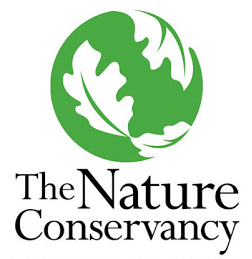
A new partnership between the Center for Native Peoples and the Environment and The Nature Conservancy (TNC) will serve as a bridge between traditional ecological knowledge and Western scientific approaches, embracing a “two-eyed” way of seeing and informing conservation. The four-year partnership has three main components: new and strengthened relationships among ESF, TNC and Indigenous Nations; advancement of land justice by increasing access for Indigenous Peoples to lands in their own original territories; co-developing a new narrative on TNC preserves that restores Indigenous Peoples’ engagement with their ancestral homelands and gives voices to their perspectives in interpretation, education, and stewardship practices.
2020
Sloan Indigenous Graduate Partnership
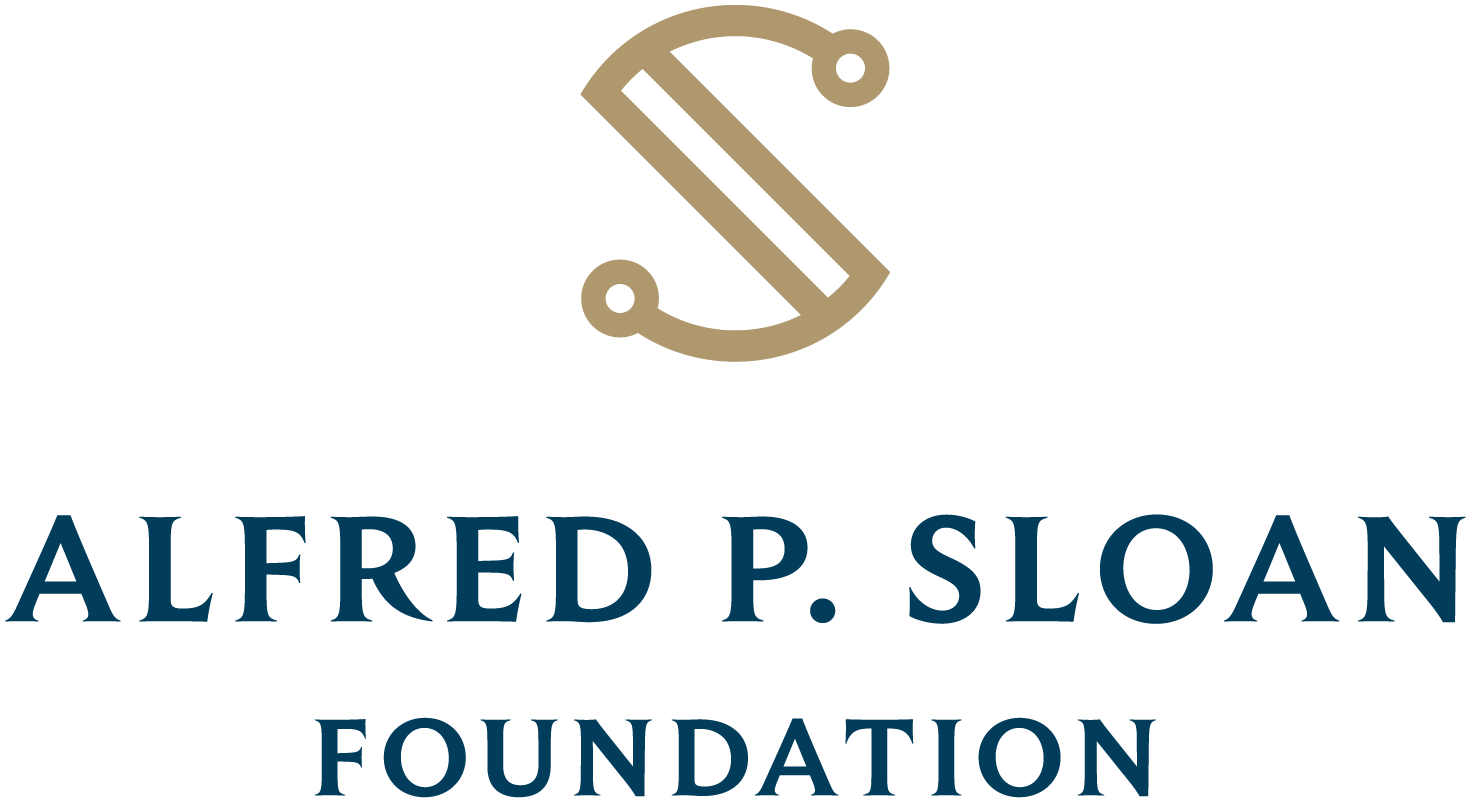
In 2019, ESF became the eighth university to join the Sloan Indigenous Graduate Partnership. Partnering with the prestigious Sloan program addresses the College's goal of increasing diversity, inclusion and equity among the student body. In the words of Dr. Kimmerer: ESF's Sloan scholars "integrate their cultural knowledge and use their degrees to support cultural revitalization in their native communities." The program serves Native students, but, "it can transform the institution as well," by bringing Indigenous science perspectives into the ESF community. "This is also an opportunity for non-native students to become good allies and to affect their own thinking."
Whose Land?
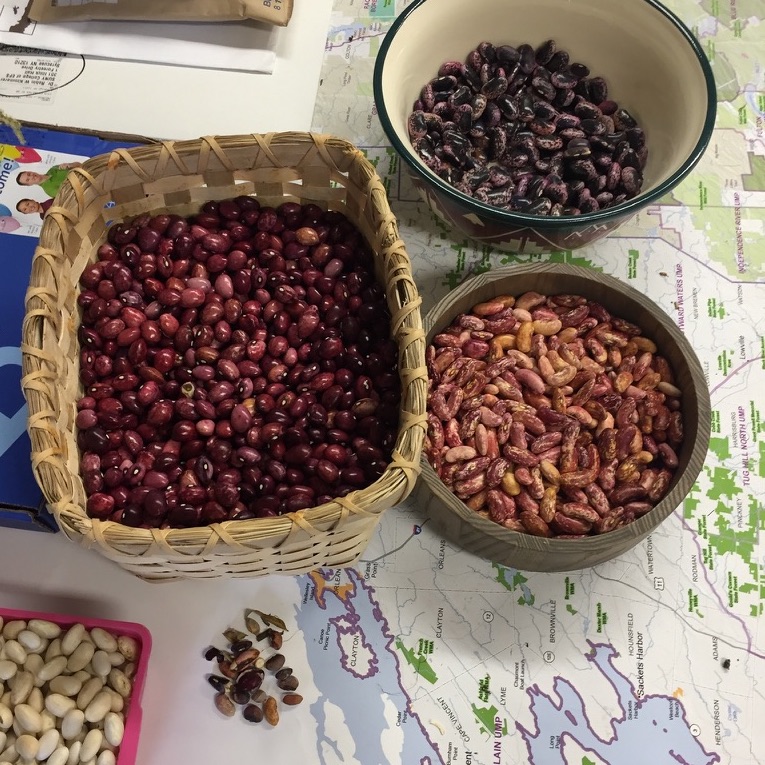 The Whose Land? project is a community history and public dialogue project that explores
the histories of farming, land and migration between New York and Wisconsin, with
an emphasis on land loss and dispossession. The project includes public conversations
and a collaborative scholar-community podcast and blog. CNPE hosted a Virtual Oral
History Workshop with Dr. James Anders Levy, University of Wisconsin, in April 2021
attended by community and academic participants. The workshop was a virtual primer
to gathering oral histories, including interviewing methods, equipment, and data access.
Whose Land? is an outgrowth of the Lands We Share Traveling Exhibition and Community
Conversation Tour of the Wisconsin Farms Oral History Project.
The Whose Land? project is a community history and public dialogue project that explores
the histories of farming, land and migration between New York and Wisconsin, with
an emphasis on land loss and dispossession. The project includes public conversations
and a collaborative scholar-community podcast and blog. CNPE hosted a Virtual Oral
History Workshop with Dr. James Anders Levy, University of Wisconsin, in April 2021
attended by community and academic participants. The workshop was a virtual primer
to gathering oral histories, including interviewing methods, equipment, and data access.
Whose Land? is an outgrowth of the Lands We Share Traveling Exhibition and Community
Conversation Tour of the Wisconsin Farms Oral History Project.
2019
Justice for the Land
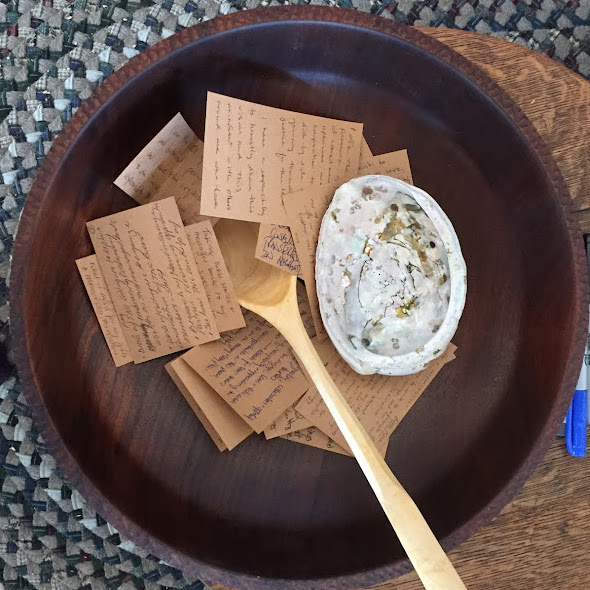 In November 2019, CNPE convened a meeting at Blue Mountain Center in the Adirondacks
entitled "Justice for the Land: a planning conversation for stewardship of Indigenous
homelands." The gathering was attended by people from Haudenosaunee communities, The
Nature Conservancy, New York State Department of Environmental Conservation, New York
State Department of State, land trust representatives, academics, as well as CNPE
staff and students. The meeting's purpose was to seek to recognize the rights of the
land and practice conservation which respects and incorporates Indigenous stewardship.
"Rights of the land" aims to extend legal protection to wetlands, forests, rivers,
lakes, prairies, etc. Further, participants focused on ways to reverse historic wrongs
and restore land tenure to Native communities whose homelands were lost through violence,
fraudulent treaties, forced acculturation, or other means.
In November 2019, CNPE convened a meeting at Blue Mountain Center in the Adirondacks
entitled "Justice for the Land: a planning conversation for stewardship of Indigenous
homelands." The gathering was attended by people from Haudenosaunee communities, The
Nature Conservancy, New York State Department of Environmental Conservation, New York
State Department of State, land trust representatives, academics, as well as CNPE
staff and students. The meeting's purpose was to seek to recognize the rights of the
land and practice conservation which respects and incorporates Indigenous stewardship.
"Rights of the land" aims to extend legal protection to wetlands, forests, rivers,
lakes, prairies, etc. Further, participants focused on ways to reverse historic wrongs
and restore land tenure to Native communities whose homelands were lost through violence,
fraudulent treaties, forced acculturation, or other means.
2018
Ways of Knowing at the Wild Center
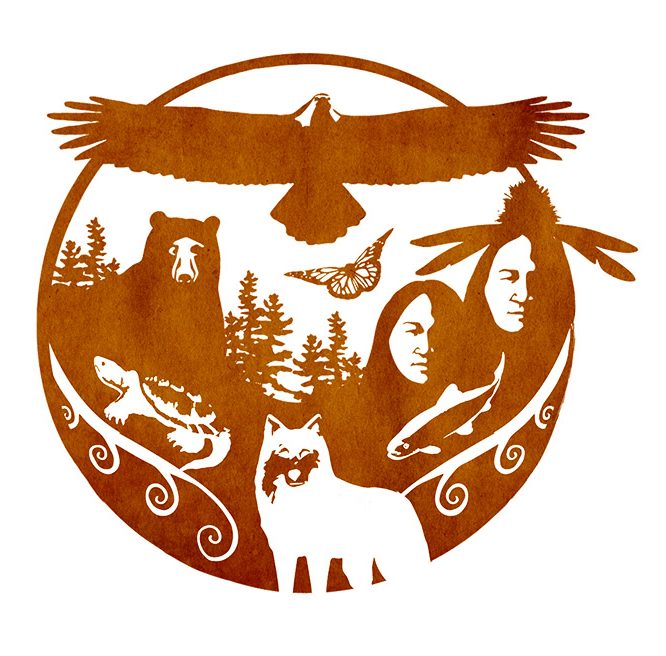 The Ways of Knowing project brings Indigenous knowledge experts together to help The
Wild Center incorporate traditional ecological knowledge, different perspectives,
and culture into its exhibits and experiences. Other partners include the Six Nations
Iroquois Cultural Center, the Akwesasne Cultural Center, Native North American Traveling
College, and the Indigenous Education Institute. CNPE interns have worked at the partner
organizations leading programs, including developing a canoe trip along the Raquette
River that shares both western science and traditional ecological knowledge.
The Ways of Knowing project brings Indigenous knowledge experts together to help The
Wild Center incorporate traditional ecological knowledge, different perspectives,
and culture into its exhibits and experiences. Other partners include the Six Nations
Iroquois Cultural Center, the Akwesasne Cultural Center, Native North American Traveling
College, and the Indigenous Education Institute. CNPE interns have worked at the partner
organizations leading programs, including developing a canoe trip along the Raquette
River that shares both western science and traditional ecological knowledge.
NYSDEC Cross-Cultural Program
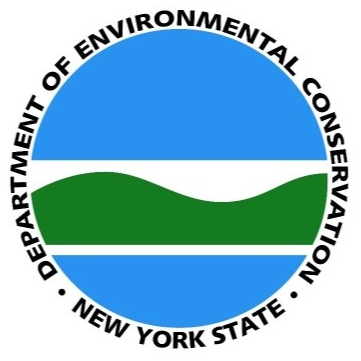 Center for Native Peoples and the Environment partnership with New York State Department
of Environmental Conservation
Center for Native Peoples and the Environment partnership with New York State Department
of Environmental Conservation
In New York State, we are fortunate to sit at the confluence of both scientific and Indigenous ecological knowledge systems that contribute to our care for this rich, diverse landscape. The programs of both New York State Department of Environmental Conservation (NYSDEC) and SUNY ESF build upon the strengths of scientific approaches to stewardship while the approaches of the Indigenous Nations are rooted in traditional ecological knowledge.
2016
Voices from Maple Nation:
Indigenous Women's Climate Change Summit
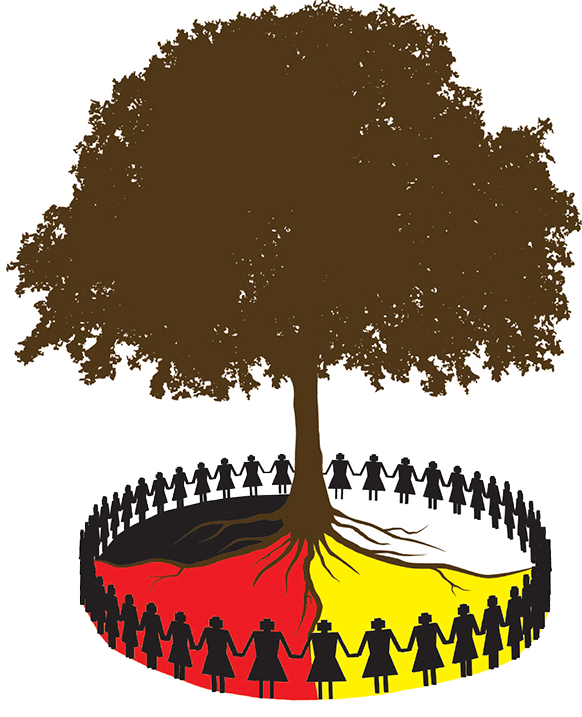 Native American women from 24 different Indigenous Nations gathered together at ESF's
Adirondack Ecological Center under a full moon in October 2016 to share knowledge
and perspectives on climate change impacts. Women were invited across the range of
Indigenous Peoples who share territory with Sugar Maples, from New Brunswick to Wisconsin.
Participants included tribal leaders, traditional knowledge holders, scientists, educators,
activists and artists. The nieces and daughters of women also joined to encourage
intergenerational knowledge transfer and to cultivate a new generation of Indigenous
environmental leaders. Over seventy women met in facilitated discussion, workshops,
and traditional cultural activities. They compiled an inventory of threats posed to
land and culture by climate change, identified potential adaptation strategies engaging
traditional and scientific knowledge, and created a mutually supportive knowledge
sharing network. The gathering was generously supported through grants from the United
States Forest Service Northern Research Station.
Native American women from 24 different Indigenous Nations gathered together at ESF's
Adirondack Ecological Center under a full moon in October 2016 to share knowledge
and perspectives on climate change impacts. Women were invited across the range of
Indigenous Peoples who share territory with Sugar Maples, from New Brunswick to Wisconsin.
Participants included tribal leaders, traditional knowledge holders, scientists, educators,
activists and artists. The nieces and daughters of women also joined to encourage
intergenerational knowledge transfer and to cultivate a new generation of Indigenous
environmental leaders. Over seventy women met in facilitated discussion, workshops,
and traditional cultural activities. They compiled an inventory of threats posed to
land and culture by climate change, identified potential adaptation strategies engaging
traditional and scientific knowledge, and created a mutually supportive knowledge
sharing network. The gathering was generously supported through grants from the United
States Forest Service Northern Research Station.
2015
Learning From the Land:
A Cross-cultural Project in Forest Stewardship Education for Climate Change Adaptation

Climate change poses a significant threat to ecosystems and human well-being across the Northern Forest and in many regions of the world, requiring new approaches to stewardship that sustain both ecosystems and human communities together. In this project, we explored models of forest stewardship that bring together traditional and scientific knowledge in pursuit of ecologically and culturally sustainable landscapes. Together with our partners, we built a multifaceted higher education program to prepare Native American students to pursue higher education in environmental and forest sciences so that they can address climate change and other complex challenges. At the same time, the program greatly enriched the knowledge and expanded the cross-cultural capabilities of non-native students by increasing their experience with Indigenous environmental philosophy and practice. In close partnership with the College of Menominee Nation (Keshena, WI) and Menominee Tribal Enterprises (MTE), we created a Forest Ecology Summer Institute and Research Exchange Program. The summer institute and research exchange program linked the Menominee Forest - an internationally recognized beacon of forest sustainability based on traditional knowledge - and ESF's Huntington Wildlife Forest - home of over 75 years of research on the silviculture, wildlife, and ecosystem dynamics of Adirondack forests - as "sister forests."
Sowing Synergy: A Graduate Program to Integrate Indigenous & Scientific Knowledge for Sustainability and Biocultural Restoration
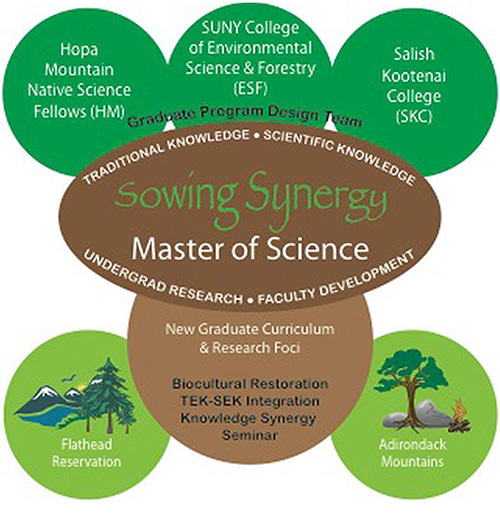 With support from a Higher Education Challenge Award from the U.S. Department of Agriculture,
we developed "Sowing Synergy", a new graduate program integrating Indigenous knowledge
with scientific knowledge in service to sustainability. The program is a collaboration
between ESF, Salish Kootenai College and Hopa Mountain Native Science Fellows in Montana. The Master’s level degree was designed to incorporate research in the
cultural and ecological landscapes of upstate New York where our college is located
and the landscapes of our partners in western Montana. The program was collaboratively
created, drawing on the wisdom and experience of tribal college educators.
With support from a Higher Education Challenge Award from the U.S. Department of Agriculture,
we developed "Sowing Synergy", a new graduate program integrating Indigenous knowledge
with scientific knowledge in service to sustainability. The program is a collaboration
between ESF, Salish Kootenai College and Hopa Mountain Native Science Fellows in Montana. The Master’s level degree was designed to incorporate research in the
cultural and ecological landscapes of upstate New York where our college is located
and the landscapes of our partners in western Montana. The program was collaboratively
created, drawing on the wisdom and experience of tribal college educators.
2014
Engaging Climber-Scientists and Indigenous Herders on Grazing and Climate Change Issues in the Altai Mountain Region of Mongolia
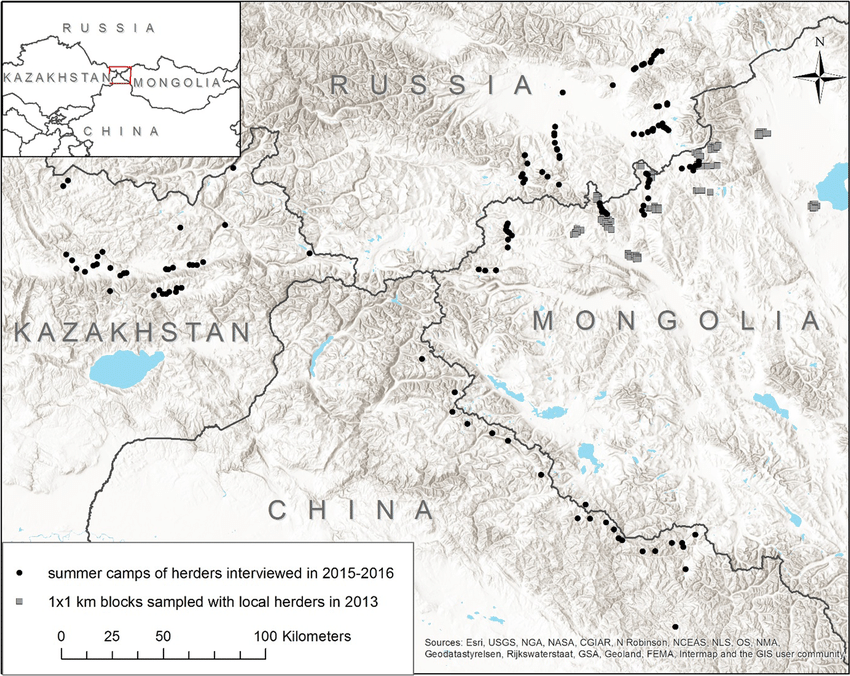 A project funded by the USAID Climate Change Resilient Development (CCRD) Project
in 2014, with. This intensive, one-year project, led by James P. Gibbs, Giorgos Mountrakis,
Mikhail Paltsyn, and Jennifer Castner, focused on the upper elevation, grassland-dominated
areas along an axis between Sylkhemyn Nuruu National Park and Altai Tavan Bogd National
Park in the Altai mountain region of western Mongolia. The project focused on (1)
assessing the impacts of grazing on biodiversity to develop a policy for the sustainable
use of pasturelands in the context of climate change, (2) strengthening cooperation
with civil society and in particular Indigenous communities by leveraging their knowledge
relevant to management, and (3) strengthening management capacity within nature parks.
A project funded by the USAID Climate Change Resilient Development (CCRD) Project
in 2014, with. This intensive, one-year project, led by James P. Gibbs, Giorgos Mountrakis,
Mikhail Paltsyn, and Jennifer Castner, focused on the upper elevation, grassland-dominated
areas along an axis between Sylkhemyn Nuruu National Park and Altai Tavan Bogd National
Park in the Altai mountain region of western Mongolia. The project focused on (1)
assessing the impacts of grazing on biodiversity to develop a policy for the sustainable
use of pasturelands in the context of climate change, (2) strengthening cooperation
with civil society and in particular Indigenous communities by leveraging their knowledge
relevant to management, and (3) strengthening management capacity within nature parks.
2012
Understanding the potential role of Mayan traditional ecological knowledge for ecological engineering of forest restoration in Mexico
 Dr. Stew Diemont works with Mayan farmers in villages in Mexico, Guatemala, and Belize.
Together they are determining how traditional ecological knowledge (TEK) can be a
part of local to regional conservation and restoration design. Both ESF undergraduate
and graduate students work with Dr. Diemont for undergraduate and graduate theses
and doctoral dissertations. Mayan farmers, Dr. Diemont, and ESF students have found
that management strategies passed down over centuries show detailed understanding
of ecological processes and seamless connection of human and natural systems. This
TEK appears to be a sustainable model for rural to urban ecosystem design.
Dr. Stew Diemont works with Mayan farmers in villages in Mexico, Guatemala, and Belize.
Together they are determining how traditional ecological knowledge (TEK) can be a
part of local to regional conservation and restoration design. Both ESF undergraduate
and graduate students work with Dr. Diemont for undergraduate and graduate theses
and doctoral dissertations. Mayan farmers, Dr. Diemont, and ESF students have found
that management strategies passed down over centuries show detailed understanding
of ecological processes and seamless connection of human and natural systems. This
TEK appears to be a sustainable model for rural to urban ecosystem design.
2011
Helping Forests Walk: Building resilience for climate change adaptation through forest stewardship in Haudenosaunee communities
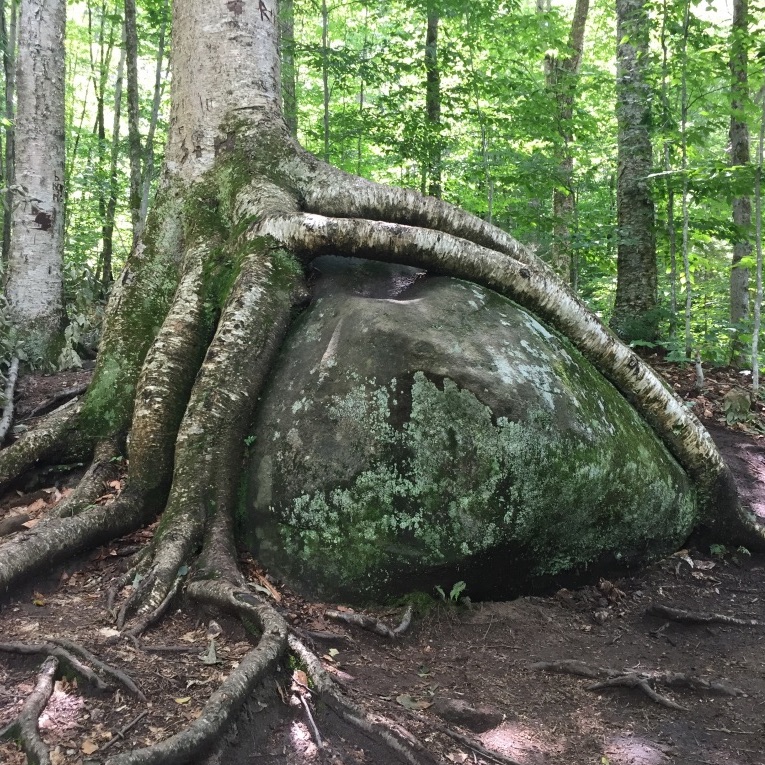 The goal of this five-year project was to engage Haudenosaunee Nations in a process
to assess opportunities for collaboration on issues of climate change mitigation and
adaptation related to forest stewardship in tribal communities. The project draws
upon traditional ecological knowledge and scientific ecological knowledge in identifying
information needs in support of potential tribal responses to climate change, including
engagement with policy development and capacity building for forest stewardship in
a cultural context at the tribal, regional, national, and international levels. This
project was conducted under the direction of PIs Dr. Marla Emery of the US Forest
Service; Dr. Robin Wall Kimmerer; Henry Lickers, Scientific Chair, Haudenosaunee Environmental
Task Force; David Arquette, Chair, Haudenosaunee Environmental Task Force.
The goal of this five-year project was to engage Haudenosaunee Nations in a process
to assess opportunities for collaboration on issues of climate change mitigation and
adaptation related to forest stewardship in tribal communities. The project draws
upon traditional ecological knowledge and scientific ecological knowledge in identifying
information needs in support of potential tribal responses to climate change, including
engagement with policy development and capacity building for forest stewardship in
a cultural context at the tribal, regional, national, and international levels. This
project was conducted under the direction of PIs Dr. Marla Emery of the US Forest
Service; Dr. Robin Wall Kimmerer; Henry Lickers, Scientific Chair, Haudenosaunee Environmental
Task Force; David Arquette, Chair, Haudenosaunee Environmental Task Force.
